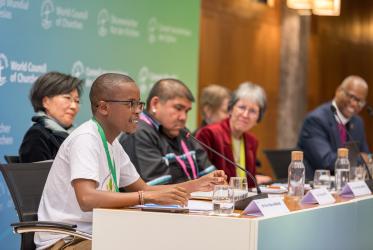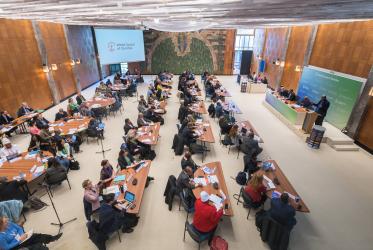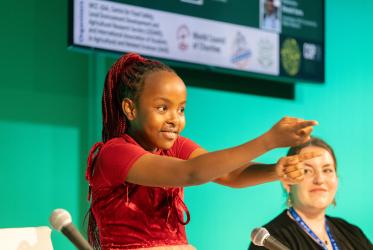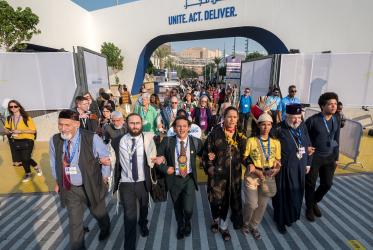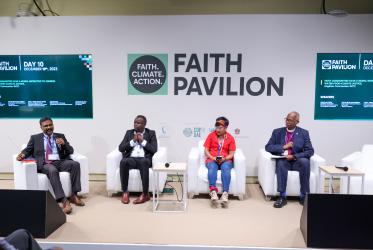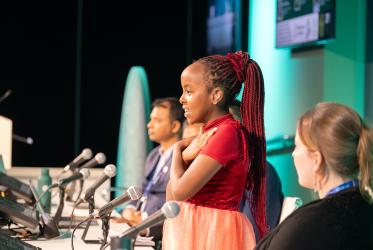Displaying 21 - 40 of 1486
Que peuvent faire les Églises pour prévenir l’esclavage moderne?
26 February 2024
What can churches do to prevent modern slavery?
22 February 2024
WCC and partners to host seminar in Assisi on Feast of Creation
21 February 2024
WCC to share key insights at World Social Forum
09 February 2024
Faith Actors Reflect on Their Role in Reaching HIV Goals at ICASA
21 December 2023
Ellyanne Chlystun-Githae Wanjiku to COP28: “listen more to children”
13 December 2023
